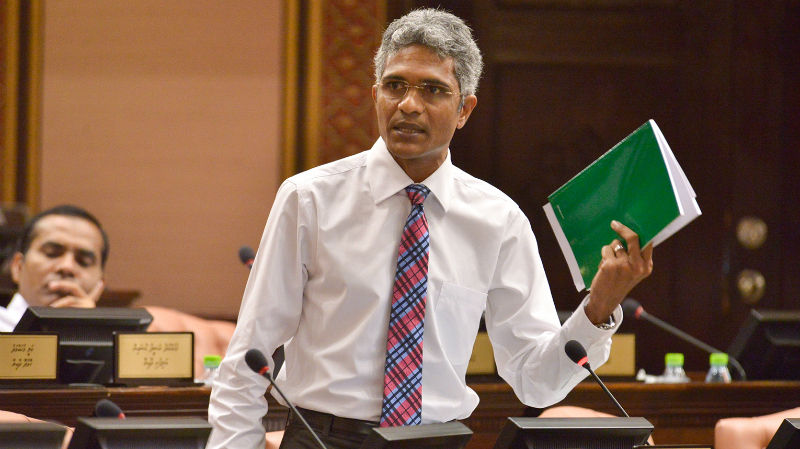Maldives moves ahead with criminalising defamation

23 Mar 2016, 9:00 AM
Majority Leader Ahmed Nihan has submitted legislation on behalf of the government to criminalise defamation and expressions contrary to national interest or tenets of Islam.
The defamation and freedom of expression bill – introduced at Tuesday’s sitting of parliament – prescribes hefty fines of between MVR50,000 (US$3,200) and MVR5 million (US$324,000) as penalties for violations. Offenders who fail to pay the court-imposed fine will face a one-year jail term.
Individuals can be prosecuted for defamation if they are unable to prove the truth of an assertion at court in line with standards followed in civil defamation suits.
The draft legislation states that the constitutional right to freedom of speech can be narrowed or restricted if an expression contradicts a tenet of Islam, threatens national security, defames or causes damage to an individual, or violates societal norms.
Become a member
Get full access to our archive and personalise your experience.
Already a member?
Discussion
No comments yet. Be the first to share your thoughts!
No comments yet. Be the first to join the conversation!
Join the Conversation
Sign in to share your thoughts under an alias and take part in the discussion. Independent journalism thrives on open, respectful debate — your voice matters.




